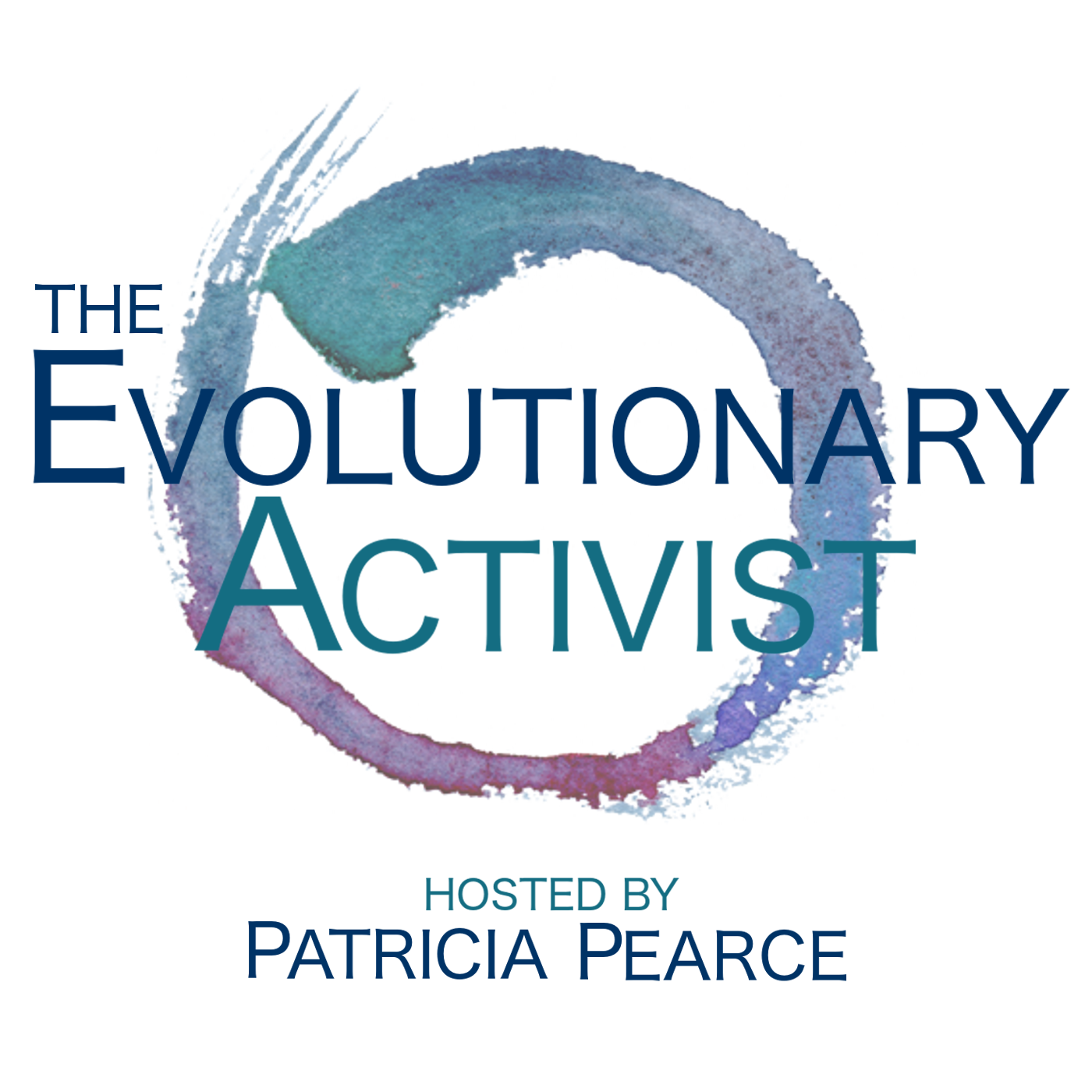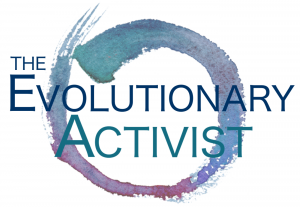www.patriciapearce.com/podcast
Whenever individuals or groups are coming under attack, solidarity is important to demonstrate that they are not alone. And yet solidarity becomes unhelpful if we are joining in solidarity with a false self.
Here is the blog post I refer to in this episode: Three Ways to Be a Peacemaker in a Time of Hatred

Transcript
Hello Evolutionaries, and welcome to this week’s podcast episode. Today I would like to talk with you about solidarity. It is something that I have spoken about and written about, qnd something I believe is essential in these times, times when groups of people are becoming marginalized and targeted. Being in solidarity now with those who are coming under attack and being marginalized, is essential. In response, I wrote an article called “Three Ways to be a Peacemaker in a Time of Hatred” and I would like to talk about that article:
I wrote about the need for solidarity and how important it is because what we demonstrate when we stand in solidarity with those who are being marginalized and attacked, is that they are not alone. We are demonstrating that we are not going to allow for them to be cut off and turned into victims and become the scapegoats.
So it’s important at that level. Also it is important because it conveys to the people who are coming under attack, that they’re not alone and therefore, they don’t feel that they are in isolation. The feeling of being isolated is sometimes just as painful as the attack itself. So, for many reasons, being in solidarity is very, very important, and it is something that I have actively done from time to time in my life and as early as I can remember. Actually, as a child, I remember practicing solidarity, not because of anything I really knew about other than instinctually. Somehow I knew that it’s not good to allow people to be cut off and made to be scapegoats.
In the 1990s, I went to Guatemala. I was sent there to accompany a woman whose husband had been killed by the military in Guatemala. He was a pastor, a Mayan pastor, and he had been abducted, tortured and killed by the military for speaking out against the authorities. Soon after, his wife began receiving death threats.
The Presbyterian Church responded by sending people down to be with her, to accompany her and to make it clear to the death squads of people who were trying to intimidate her and potentially threaten her life, that she was not alone, that people were aware of her situation, and that the eyes of the international community were on her. I stayed with her and her family and I traveled with her when she had had to go to the marketplace and so forth. That is one example of solidarity—perhaps a rather extreme example of solidarity. But we can practice solidarity in much more ordinary ways in our day-to-day lives.
When we notice someone, anyone, who is being belittled, ridiculed—any of that—we can step in and just be with them, even in very subtle ways. But, regardless of how extremely important solidarity is, especially right now, I also want to talk about the limits of solidarity and when it becomes inappropriate. This aspect will tie into what I have talked about many times on this podcast, in terms of us moving beyond the ego, beyond the mind and beyond our story of separateness—a story that keeps us constrained in the belief or the awareness of a small self, a little self that is not the fullness of who we are.
The times that solidarity is not called for is when we see someone acting out of their small self—or out of that egoic perspective—when they are not cognizant or aware of the fullness of their being, when they are not aware of the of their own divine nature.
We do not stand in solidarity with that small self, we must only stand in solidarity with the fullness of who they truly are—whether or not they know it. We often can easily see this playing out in the political arena, and sometimes, but with more difficulty, in our own lives. Often we stand in solidarity with someone supporting their smallness, as though that’s helpful. Perhaps we stand in solidarity, with their stories of not being able to do something, or their stories about not being good enough, or their stories about scarcity.
When we meet them at that place of being, we are not serving their best interests, we are standing in solidarity with a false self, not with the true self. And so if we really want to stand in true solidarity, we stand in solidarity with the fullness of who we all are are. We stand with the fullness of our potential. We stand in solidarity with our true divine nature or you might say, self.
This can also be done in our own minds by inwardly paying attention to the times when we might be standing in solidarity with our own stories of limitations, our own stories of scarcity or our own stories of unworthiness. You see, that is not being in service to ourselves, or to others, or to the world at large. With introspection, we can begin to notice when we buy into those misperceptions and when we are reinforcing them.
I wanted to bring this forward for us today, not only to emphasize how important solidarity is right now, publicly and in our political arena, but also in those times when we need to step back and ask ourselves, “Am I standing in solidarity with a false self?”
Let me cite an example: if we look at at the the cultural situation right now, we may see people acting out of their small selves, maybe even out of meanness that possibly comes from fear, or pain. When we see people acting out this way, out of traits of the small self, are we buying into their story, believing that that is who they are?
If so, then we are standing in solidarity with a false story. We are standing in solidarity with a false understanding of self. But if we can see what is going on and see the cruel behavior, yet not stand in solidarity with the idea that that is this person’s true nature, then we can choose not to stand in solidarity with the story, but rather stand in solidarity with the truth of who they are—even though they may not know it themselves.
And, similarly, the question each of us must also ask of ourselves is. “Am I standing in solidarity with a false self?” “Am I standing in solidarity with something that is not truly who I am?”
So I leave you with these questions to contemplate and until next week, I bid you peace.
SUMMARY KEYWORDS
solidarity, stand, scapegoats, fullness, important, stories, podcast, Guatemala, talk, small, life, political arena, marginalized, called, belittled, scarcity, egoic, week, podcast episode, unworthiness
